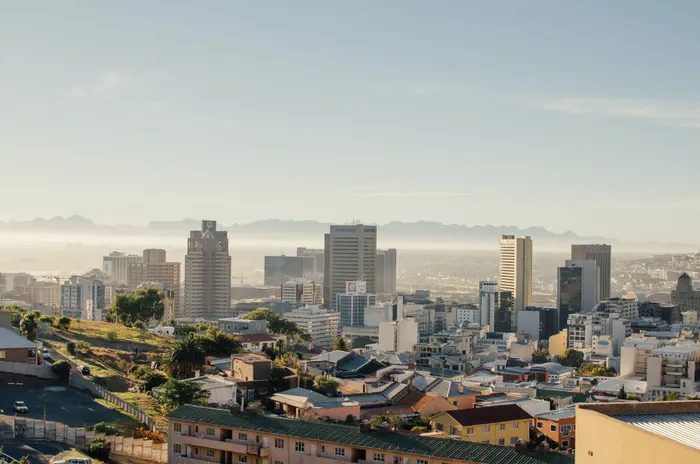How South Africa's Real Estate Investment Trusts are navigating economic resilience this year

The US tariff decision is projected to impact South Africa's real estate sector for several months as local businesses adjust to the changes.
Image: Tomas Wells/Pexels
The South African REIT market has remained resilient through this year, with the sector delivering a 14% total return year-to-date, supported by moderating inflation and stable interest rates.
Within this landscape, Spear’s focused Western Cape strategy and consistent DIPS growth position it ahead of sector averages, and it is well-placed to capture ongoing regional upside.
The private equity real estate investment business aims to scale to R15 billion in assets under ownership and a market capitalisation of R9 billion over the next decade.
Spear REIT says its long-term strategy remains secured in its focus on owning Western Cape assets with a preference for Cape Town.
The first half of the 2026 financial year demonstrated Spear’s ability to balance growth and stability while delivering strategy-aligned outcomes from the core portfolio, says CEO Quintin Rossi.
“Our exclusive Western Cape focus is a deliberate strategy - it gives us deep local market insight, agility in execution, and the ability to be in close proximity to our assets and tenants.”
He adds: “The region’s economic resilience, governance quality, and sustained demand for real estate solutions from drivers of economic activity across the board continue to underpin the performance of the core portfolio.”
Spear REIT delivered the interim results for the six months ended at the end of August this year, supported by stable operational and financial performance, disciplined capital allocation, and continued portfolio growth.
It says the results reflect a period of measured expansion and strategic investment, with Spear remaining the only regionally focused REIT on the JSE, operating exclusively within the Western Cape.
During the period, Spear says it concluded R1.074 billion in strategic acquisitions including the River Business Park (Paarl), Consani Industrial Park (Elsies River), and Maynard Mall (Wynberg). It says the transactions add over 137 000 m² of additional GLA and will take Spear’s total portfolio to around 624 000 m² once transfers are finalised between this month and January next year.
Acquired at an average yield of 9.54%, all three assets are said to be accretive, meet Spear’s strict investment criteria, and will contribute immediately to distributable income once transferred.
Rossi says: “These acquisitions further strengthen our industrial and retail exposure sectors, where we continue to see consistent tenant demand and strong rental growth potential.
"Our focus remains on high-quality, cash-generative assets that align with Spear’s long-term distribution and value growth objectives, which may also include further portfolio acquisition opportunities within the region.”
Spear’s occupancy rate is said to have remained firm at 95.03%, supported by collection rates of 98.96%. Portfolio valuations increased by R107 million, reflecting a 2% uplift over the period. Rental reversions were positive at 1.31%, signalling sustained tenant confidence across the portfolio.
By February 2026, the company says 67% of its portfolio will be equipped with embedded PV solar infrastructure in line with Spear’s sustainability strategy as the business seeks to place less reliance on fossil-fuel-generated electricity supply whilst harnessing the attractive rate of returns its PV solar portfolio generates.
This was as Electricity and Energy Minister, Dr Kgosientsho Ramokgopa, outlined South Africa’s new energy transition strategy on Sunday. The Integrated Resource Plan (IRP) shifts the country’s energy reliance from fossil fuels to renewables, gas and nuclear.
The government expects more than 105 000 MW of new generation capacity by 2039, with 34 000 MW from wind and 25 000 MW from solar. The fossil fuels will not disappear entirely. Gas-to-power-6 000 MW by 2030-will act as a stabiliser, while a “clean coal” demonstration plant remains on the cards.
The company’s loan-to-value ratio of 13.85% and R749 million equity raise in June this year provides Spear with dealmaking capacity while maintaining a conservative balance sheet profile.
“Our prudent capital structure gives us flexibility to pursue growth opportunities while maintaining distribution sustainability,” Rossi says. “Liquidity and investor confidence have improved meaningfully, with Spear now trading at one of the narrowest discounts to Net Asset Value in the South African REIT sector.”
The company says its potential inclusion in the FTSE/JSE All Property Index in March next year is expected to further enhance liquidity and institutional participation.
Looking ahead, Spear reaffirmed its FY2026 full-year DIPS growth guidance of 4% to 6%, with a payout ratio maintained at 95%.
“We will continue to prioritise high occupancy, disciplined cost management, and accretive capital deployment.”
The CEO says their focus is on consistent, predictable growth and delivering long-term value for shareholders through a well-managed, regionally focused portfolio.
Meanwhile, the Bank of America’s latest South Africa Fund Manager Survey (October 2025) reveals a notable shift in market sentiment, with 81% of fund managers bullish on local equities and a clear rotation from resources to domestic sectors such as retailers, food producers, and banks.
The findings are said to point to renewed confidence in South Africa’s economic outlook, easing inflation expectations, and forecasts of rate cuts before year-end.
Interestingly, half of fund managers anticipate a repo cut in the fourth quarter, with equity positioning at multi-year highs and investors favouring domestic over offshore exposure.
Independent Media Property
Related Topics: